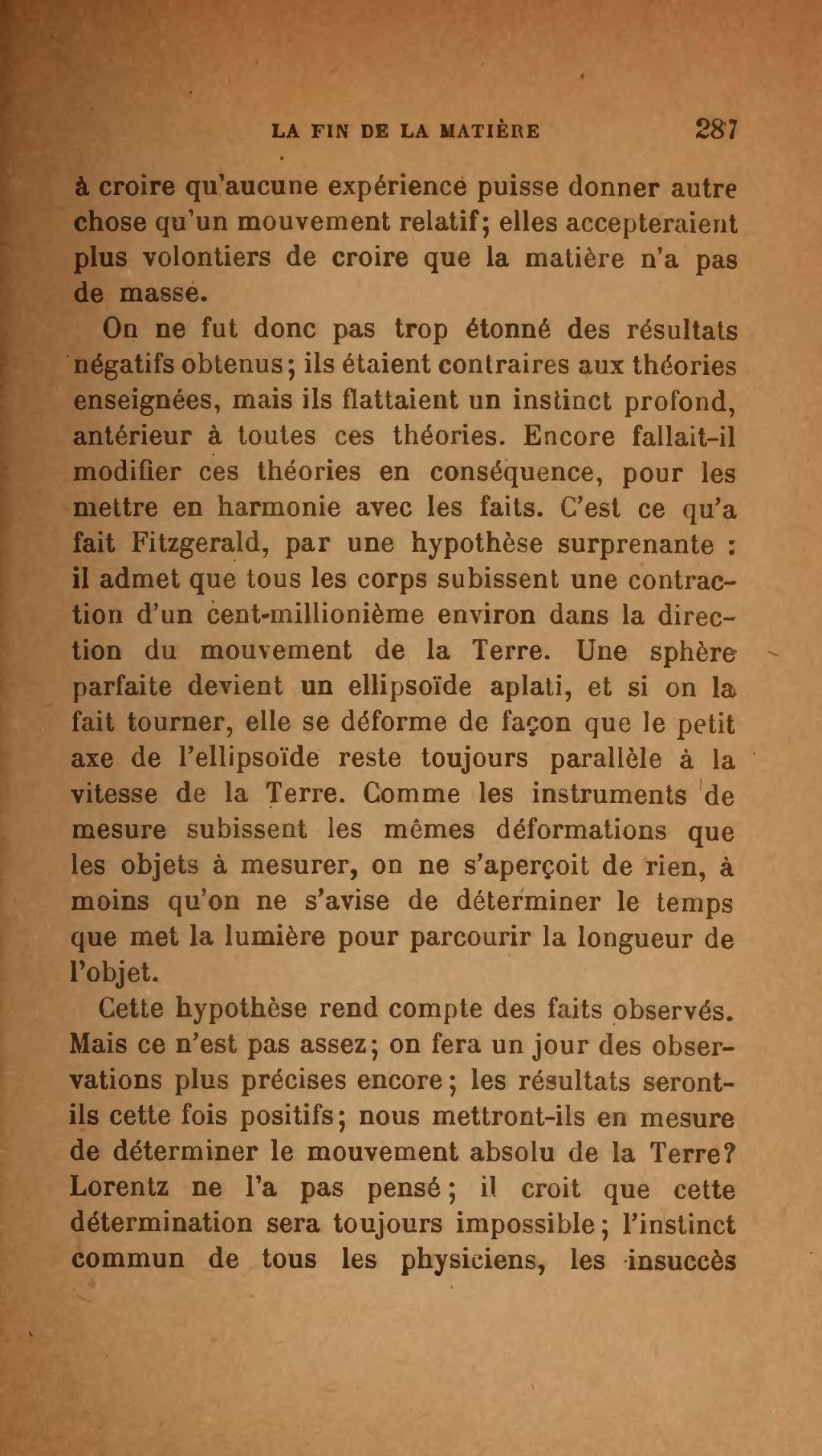that something different than relative motion can ever be demonstrated by experiment; they rather stick to the conclusion that matter has no mass.
Thus we weren't too much surprised by the negative results; although they contradicted the predominant theories, they satisfied a certain deeper instinct, which is older and stronger than all theories. There remained nothing left than to change the theories, so that they can be brought into agreement with this fact again. For this purpose, Fitzgerald made a surprising hypothesis: according to him, alls bodies shall suffer a contraction of about a hundred-millionth in the direction of Earth's motion. A perfect sphere consequently changes into an oblate ellipsoid, and if one sets it into rotation, than it is deformed so that the minor axis of the ellipsoid always remains parallel to the direction of Earth's velocity. Since the measuring instruments are deformed in the same ways as the observed objects, the deformation cannot be observed, unless one could determine the time which is required by light to traverse the object along its length.
This hypotheses accounts for the observed facts. But one cannot be satisfied by that; sometimes one will make observations which are still more precise: will the results be positive? will they give us the means to determine the absolute motion of Earth? Lorentz doesn't believe this; he thinks that such a determination is impossible also in the future; the agreeing instinct of all physicists,
